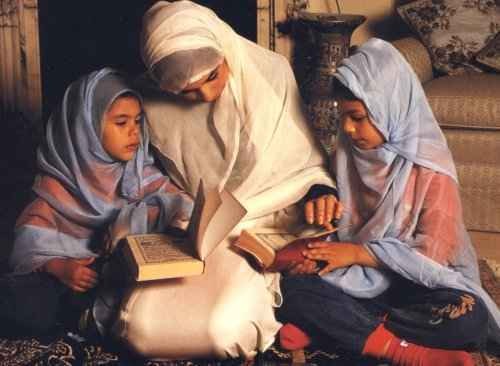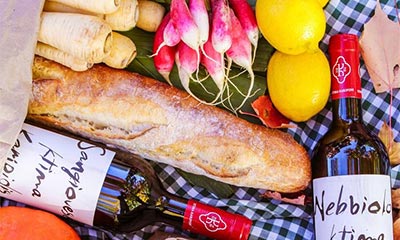What is Islam?

Islam is the monotheistic religionarticulated by the Qur’an, a text considered by its adherents to be the verbatim word of God (Allah), and by the teachings and normative example (called the Sunnah and composed of Hadith) of Muhammad, often considered by them to be the last prophet of God. In addition to referring to the religion itself, the word Islam means 'submission to God','peace', and 'way to peace'. An adherent of Islam is called a Muslim.
Muslims believe that God is one and incomparable. Muslims also believe that Islam is the complete and universal version of a primordial faith that was revealed at many times and places before, including through the prophets Abraham, Moses and Jesus. Muslims maintain that previous messages and revelations have been partially changed or corrupted over time, but consider the Qur'an to be both the unaltered and the final revelation from God—Final Testament. Religious concepts and practices include the five pillars of Islam, which are basic concepts and obligatory acts of worship, and following Islamic law, which touches on virtually every aspect of life and society, encompassing everything from banking, politics, and welfare, to warfare and theenvironment.
Most Muslims belong to one of two denominations; with 80-90% being Sunni and 10-20% beingShia. About 13% of Muslims live in Indonesia, the largest Muslim country, 25% in South Asia, 20% in the Middle East, 2% in Central Asia, 4% in the remaining South East Asian countries, and 15% in Sub-saharan Africa. Sizable communities are also found in China and Russia, and parts of the Caribbean[citation needed]. Converts and immigrant communities are found in almost every part of the world. With about 1.41-1.57 billion Muslims, comprising about 21-23% of the world's population (see Islam by country), Islam is the second-largest religion and one of the fastest-growing religions in the world.
Five pillars
The Pillars of Islam (arkan al-Islam; also arkan ad-din, "pillars of religion") are five basic acts in Islam, considered obligatory for all believers. The Quran presents them as a framework for worship and a sign of commitment to the faith. They are (1) the shahadah (creed), (2) daily prayers (salat), (3) almsgiving (zakah), (4) fasting during Ramadan and (5) the pilgrimage to Mecca (hajj) at least once in a lifetime. The Shiaand Sunni sects both agree on the essential details for the performance of these acts
Testimony
The Shahadah, which is the basic creed of Islam that must be recited under oath with the specific statement: "'ašhadu 'al-lā ilāha illā-llāhu wa 'ašhadu 'anna muħammadan rasūlu-llāh", or "I testify that there is none worthy of worship except God and I testify that Muhammad is the Messenger of God." This testament is a foundation for all other beliefs and practices in Islam. Muslims must repeat the shahadah in prayer, and non-Muslims wishing to convert to Islam are required to recite the creed.
Prayer
Ritual prayers, called Ṣalāh or Ṣalāt, must be performed five times a day. Salah is intended to focus the mind on God, and is seen as a personal communication with him that expresses gratitude and worship. Salah is compulsory but flexibility in the specifics is allowed depending on circumstances. The prayers are recited in the Arabic language, and consist of verses from the Qur'an.
A mosque is a place of worship for Muslims, who often refer to it by its Arabic name, masjid. The wordmosque in English refers to all types of buildings dedicated to Islamic worship, although there is a distinction in Arabic between the smaller, privately owned mosque and the larger, "collective" mosque (masjid jāmi`). Although the primary purpose of the mosque is to serve as a place of prayer, it is also important to the Muslim community as a place to meet and study. Modern mosques have evolved greatly from the early designs of the 7th century, and contain a variety of architectural elements such as minarets.
Fasting
Fasting, called "Sawm", from food and drink (among other things) must be performed from dawn to dusk during the month of Ramadhan. The fast is to encourage a feeling of nearness to God, and during it Muslims should express their gratitude for and dependence on him, atone for their past sins, and think of the needy. Sawm is not obligatory for several groups for whom it would constitute an undue burden. For others, flexibility is allowed depending on circumstances, but missed fasts usually must be made up quickly.
Alms-giving
"Zakāt" is giving a fixed portion of accumulated wealth by those who can afford it to help the poor or needy, and also to assist the spread of Islam. It is considered a religious obligation (as opposed to voluntary charity) that the well-off owe to the needy because their wealth is seen as a "trust from God's bounty". The Qur'an and the hadith also suggest a Muslim give even more as an act of voluntary alms-giving (sadaqah).
Pilgrimage
The pilgrimage, called the Hajj during the Islamic month of Dhu al-Hijjah in the city of Mecca. Every able-bodied Muslim who can afford it must make the pilgrimage to Mecca at least once in his or her lifetime. Rituals of the Hajj include walking seven times around the Kaaba, touching the black stone if possible, walking or running seven times between Mount Safa and Mount Marwah, and symbolically stoning the Devil in Mina.
Etiquette and diet
Many practices fall in the category of adab, or Islamic etiquette. This includes greeting others with "as-salamu `alaykum" ("peace be unto you"), saying bismillah ("in the name of God") before meals, and using only the right hand for eating and drinking. Islamic hygienic practices mainly fall into the category of personal cleanliness and health. Circumcision of male offspring is also practiced in Islam. Islamic burial ritualsinclude saying the Salat al-Janazah ("funeral prayer") over the bathed and enshrouded dead body, and burying it in a grave. Muslims are restricted in their diet. Prohibited foods include pork products, blood, carrion, and alcohol. All meat must come from a herbivorous animal slaughtered in the name of God by a Muslim, Jew, or Christian, with the exception of game that one has hunted or fished for oneself. Food permissible for Muslims is known as halal food.
Family life
The basic unit of Islamic society is the family, and Islam defines the obligations and legal rights of family members. The father is seen as financially responsible for his family, and is obliged to cater for their well-being. The division of inheritance is specified in the Qur'an, which states that most of it is to pass to the immediate family, while a portion is set aside for the payment of debts and the making of bequests. With some exceptions, the woman's share of inheritance is generally half of that of a man with the same rights of succession. Marriage in Islam is a civil contract which consists of an offer and acceptance between two qualified parties in the presence of two witnesses. The groom is required to pay a bridal gift (mahr) to the bride, as stipulated in the contract. A man may have up to four wives if he believes he can treat them equally, while a woman may have only one husband. In most Muslim countries, the process of divorce in Islam is known as talaq, which the husband initiates by pronouncing the word "divorce".Scholars disagree whether Islamic holy texts justify traditional Islamic practices such as veiling and seclusion (purdah). Starting in the 20th century, Muslim social reformers argued against these and other practices such as polygamy in Islam, with varying success. At the same time, many Muslim women have attempted to reconcile tradition with modernity by combining an active life with outward modesty. CertainIslamist groups like the Taliban have sought to continue traditional law as applied to women.
Muslims believe that God is one and incomparable. Muslims also believe that Islam is the complete and universal version of a primordial faith that was revealed at many times and places before, including through the prophets Abraham, Moses and Jesus. Muslims maintain that previous messages and revelations have been partially changed or corrupted over time, but consider the Qur'an to be both the unaltered and the final revelation from God—Final Testament. Religious concepts and practices include the five pillars of Islam, which are basic concepts and obligatory acts of worship, and following Islamic law, which touches on virtually every aspect of life and society, encompassing everything from banking, politics, and welfare, to warfare and theenvironment.
Most Muslims belong to one of two denominations; with 80-90% being Sunni and 10-20% beingShia. About 13% of Muslims live in Indonesia, the largest Muslim country, 25% in South Asia, 20% in the Middle East, 2% in Central Asia, 4% in the remaining South East Asian countries, and 15% in Sub-saharan Africa. Sizable communities are also found in China and Russia, and parts of the Caribbean[citation needed]. Converts and immigrant communities are found in almost every part of the world. With about 1.41-1.57 billion Muslims, comprising about 21-23% of the world's population (see Islam by country), Islam is the second-largest religion and one of the fastest-growing religions in the world.
Five pillars
The Pillars of Islam (arkan al-Islam; also arkan ad-din, "pillars of religion") are five basic acts in Islam, considered obligatory for all believers. The Quran presents them as a framework for worship and a sign of commitment to the faith. They are (1) the shahadah (creed), (2) daily prayers (salat), (3) almsgiving (zakah), (4) fasting during Ramadan and (5) the pilgrimage to Mecca (hajj) at least once in a lifetime. The Shiaand Sunni sects both agree on the essential details for the performance of these acts
Testimony
The Shahadah, which is the basic creed of Islam that must be recited under oath with the specific statement: "'ašhadu 'al-lā ilāha illā-llāhu wa 'ašhadu 'anna muħammadan rasūlu-llāh", or "I testify that there is none worthy of worship except God and I testify that Muhammad is the Messenger of God." This testament is a foundation for all other beliefs and practices in Islam. Muslims must repeat the shahadah in prayer, and non-Muslims wishing to convert to Islam are required to recite the creed.
Prayer
Ritual prayers, called Ṣalāh or Ṣalāt, must be performed five times a day. Salah is intended to focus the mind on God, and is seen as a personal communication with him that expresses gratitude and worship. Salah is compulsory but flexibility in the specifics is allowed depending on circumstances. The prayers are recited in the Arabic language, and consist of verses from the Qur'an.
A mosque is a place of worship for Muslims, who often refer to it by its Arabic name, masjid. The wordmosque in English refers to all types of buildings dedicated to Islamic worship, although there is a distinction in Arabic between the smaller, privately owned mosque and the larger, "collective" mosque (masjid jāmi`). Although the primary purpose of the mosque is to serve as a place of prayer, it is also important to the Muslim community as a place to meet and study. Modern mosques have evolved greatly from the early designs of the 7th century, and contain a variety of architectural elements such as minarets.
Fasting
Fasting, called "Sawm", from food and drink (among other things) must be performed from dawn to dusk during the month of Ramadhan. The fast is to encourage a feeling of nearness to God, and during it Muslims should express their gratitude for and dependence on him, atone for their past sins, and think of the needy. Sawm is not obligatory for several groups for whom it would constitute an undue burden. For others, flexibility is allowed depending on circumstances, but missed fasts usually must be made up quickly.
Alms-giving
"Zakāt" is giving a fixed portion of accumulated wealth by those who can afford it to help the poor or needy, and also to assist the spread of Islam. It is considered a religious obligation (as opposed to voluntary charity) that the well-off owe to the needy because their wealth is seen as a "trust from God's bounty". The Qur'an and the hadith also suggest a Muslim give even more as an act of voluntary alms-giving (sadaqah).
Pilgrimage
The pilgrimage, called the Hajj during the Islamic month of Dhu al-Hijjah in the city of Mecca. Every able-bodied Muslim who can afford it must make the pilgrimage to Mecca at least once in his or her lifetime. Rituals of the Hajj include walking seven times around the Kaaba, touching the black stone if possible, walking or running seven times between Mount Safa and Mount Marwah, and symbolically stoning the Devil in Mina.
Etiquette and diet
Many practices fall in the category of adab, or Islamic etiquette. This includes greeting others with "as-salamu `alaykum" ("peace be unto you"), saying bismillah ("in the name of God") before meals, and using only the right hand for eating and drinking. Islamic hygienic practices mainly fall into the category of personal cleanliness and health. Circumcision of male offspring is also practiced in Islam. Islamic burial ritualsinclude saying the Salat al-Janazah ("funeral prayer") over the bathed and enshrouded dead body, and burying it in a grave. Muslims are restricted in their diet. Prohibited foods include pork products, blood, carrion, and alcohol. All meat must come from a herbivorous animal slaughtered in the name of God by a Muslim, Jew, or Christian, with the exception of game that one has hunted or fished for oneself. Food permissible for Muslims is known as halal food.
Family life
The basic unit of Islamic society is the family, and Islam defines the obligations and legal rights of family members. The father is seen as financially responsible for his family, and is obliged to cater for their well-being. The division of inheritance is specified in the Qur'an, which states that most of it is to pass to the immediate family, while a portion is set aside for the payment of debts and the making of bequests. With some exceptions, the woman's share of inheritance is generally half of that of a man with the same rights of succession. Marriage in Islam is a civil contract which consists of an offer and acceptance between two qualified parties in the presence of two witnesses. The groom is required to pay a bridal gift (mahr) to the bride, as stipulated in the contract. A man may have up to four wives if he believes he can treat them equally, while a woman may have only one husband. In most Muslim countries, the process of divorce in Islam is known as talaq, which the husband initiates by pronouncing the word "divorce".Scholars disagree whether Islamic holy texts justify traditional Islamic practices such as veiling and seclusion (purdah). Starting in the 20th century, Muslim social reformers argued against these and other practices such as polygamy in Islam, with varying success. At the same time, many Muslim women have attempted to reconcile tradition with modernity by combining an active life with outward modesty. CertainIslamist groups like the Taliban have sought to continue traditional law as applied to women.
from Wikipedia











Comments (5)
Sofyan Effendi
6
http://mahakam24.com
Dear Monika
I like with this article
David Fredynanto
3
Designer
ISLAM i love u forever
Kristofer M.
4
Medical Advisor
Thanks Monika! I wish to add some special duties of every muslim male (FARZes)like to marry and to have a child which are very important from the point of view of modern social problems in the EU and North America.
Roosevelt Evans III
10
Home Business Entrepreneur
All governments or States are better when there is separation between religion and State. Clergymen and clerics make poor Statesman. No goverment should be ruled by Sharia Law, the Talmud or the Pope but rather by a democratic constitution. Turkey is a "good" Muslim country as long as she adhere's to the Founder Of Turkey's design of separation from religion. God, I bet Turkey is a beautiful country as well.
Paula van Dun
16
Retired
I have many Turkish friends with Islam religion. I am Christian. There many similarities in the bible and the koran. On some points the opinion of me and my Turkish friends are different but we get along fine. There are many things I like both in Islam religion and Turkish culture. In Turkish culture religion is more part of daily life than in Holland. Turkey has, opposed to many other Islam countries, religion separated from government and politics what makes a huge difference. It is a shame th